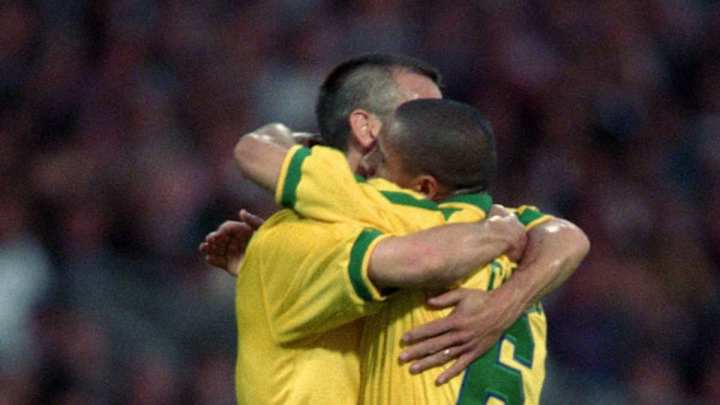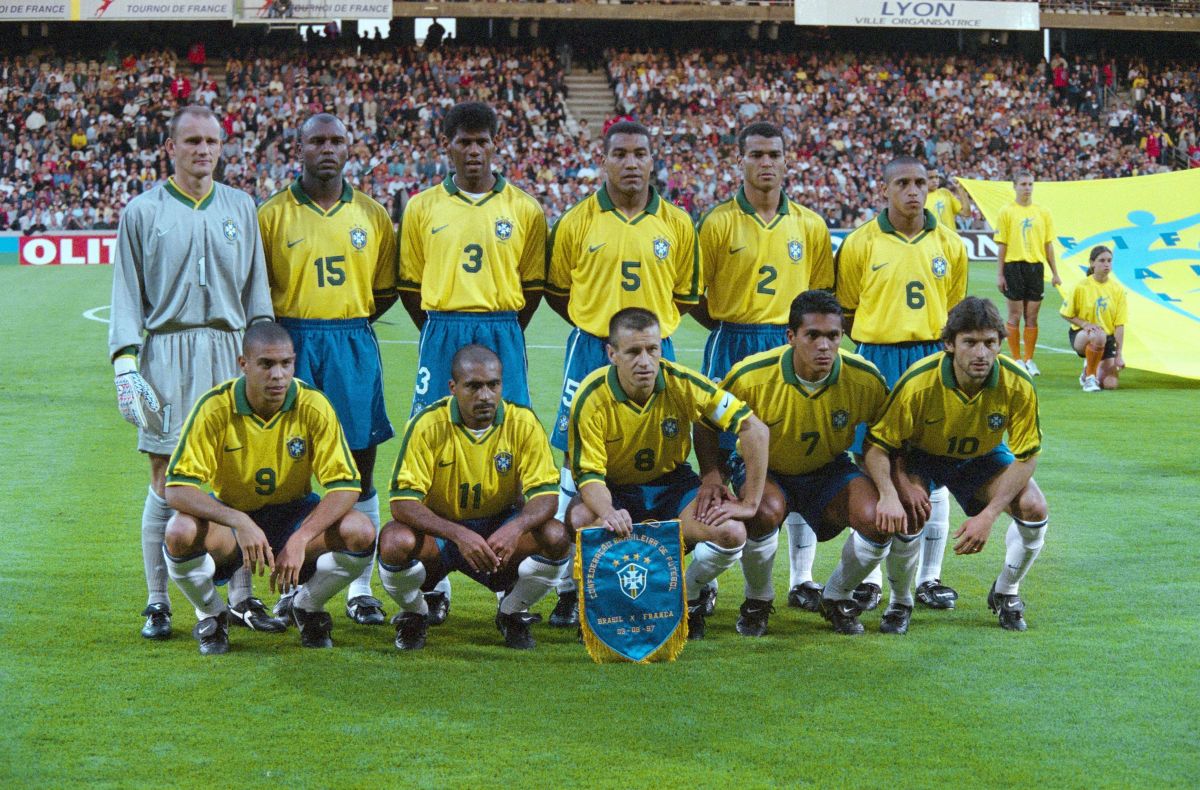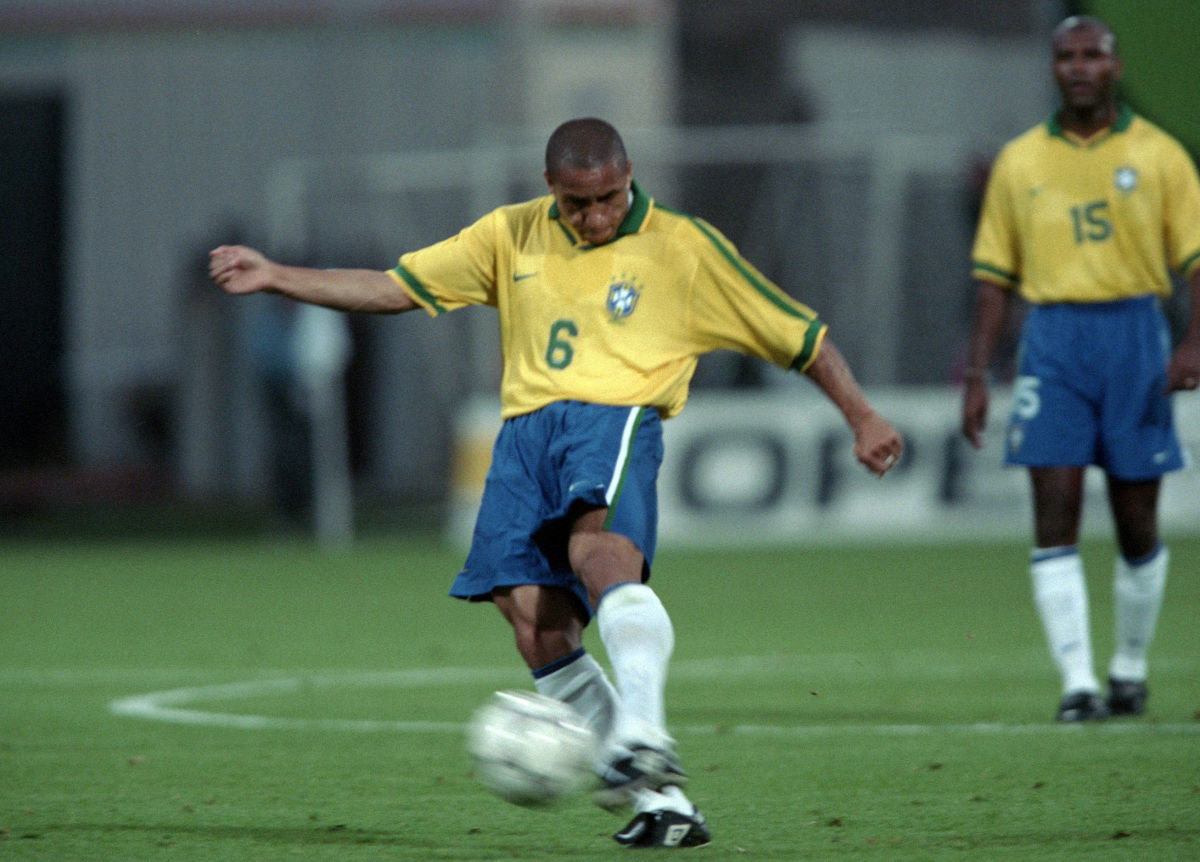Roberto Carlos: Revisiting THAT Free Kick Against France & the Legacy it Holds 22 Years On

"Science means constantly walking a tightrope between blind faith and curiosity; between expertise and creativity; between bias and openness; between experience and epiphany; between ambition and passion; and between arrogance and conviction - in short, between an old today and a new tomorrow." - Heinrich Rohrer
In every way, Roberto Carlos was a man who broke conventions.
In that vein, it seemed right to start an article about Carlos with a pretentious (but profoundly relevant) quote from a Nobel prize-winning physicist - because there has been no footballer in the history of the game who has commanded the attention of the scientific world as he has.

This is because, in turn, there has been no footballer - maybe even sportsman - who has been able to warp the game's (and by proxy life's) conventions like he did.
This starts with the fact that his two greatest moments came in an international exhibition match and a Copa del Rey clash against lowly Tenerife and ends with the fact that, with these goals, on these meaningless occasions, Carlos bent the physical world to his will.
But, for now, this is all about the former, that free kick against France in the 1997 Tournoi de France, a warm-up tournament for the 1998 World Cup which was effectively a forebear for the now-defunct FIFA Confederations Cup.
There are several ironies to this goal being scored at this time, against this opposition. Firstly, would you hasten a guess as to who won this prestigious 'Tournoi'? I'll give you some help, there were four competitors, with Italy and England filling the remaining two spots?
Answers locked?
🚀 #OnThisDay in 1997, Roberto Carlos rewrote the laws of physics. pic.twitter.com/hVQ5wSpqxM
— Unibet (@unibet) June 3, 2019
Well, the good news is, if you guessed that it was the reigning World champions from '94, you're wrong. If you guessed it was the runners up from that tournament you'd be wrong, just as you'd be incorrect if you opted for the soon-to-be anointed champions of '98.
That's because, yes, it was bloody blighty whodunnit. But the second, more pressing irony will have to wait until after the goal has been revisited because, well, it's quite the star attraction.
Little before the full back places the ball down on the floor and marks out his infamously elongated run-up is noteworthy, save for the tidbit that the Selecao had just ten seconds before opted to take a free kick from a similar position quickly, and had done nothing but move a couple of lateral yards and receive a second set-piece. Which is where Carlos came in and stamped his barely yet earned authority - he was only recently 24 and had been at Real Madrid for just one season.
Yes, it was 40 yards out, yes, he would take it anyway.
But 'take it' is a phrase reserved for cowards. Roberto Carlos never 'took' a free kick. He thunder-[insert funny expletive]-ed it. And so, with a puffing out of his cheeks, he placed the ball down and paced backwards to sketch out his run-up. And he walked. And he walked. And, at a certain point, you think some kind of IRL FIFA glitch has felled him, and that he will just continue on this futile path until you restart the game.
But then, possibly after seeing the centre circle, he snaps out of it, suddenly surging towards the ball. Starting with the staggered steps of a conniving penalty taker, Carlos breaks into a full-on gallop before meeting the ball.
And this meeting went a bit like this: "Hi, unsuspecting ball. Unsuspecting ball, have you ever met an irresistible force? No, not even once? Well, try this for size."

And so Carlos met the ball. And he met the ball with incomprehensible might. And this might produced seismic shock waves that we can still occasionally feel today, if you really tune in to your surroundings.
But, before the shock waves came the spin. Because, didn't you know, Carlos hadn't aimed this ball at the goal like a f*&^ing Luddite. Course not. No, Carlos had aimed this ball somewhere between the corner flag and the quarter circle right next to it.
So, when Fabien Barthez saw him strike it (in a blur of velocity), he was grateful for the fact that it would obviously land somewhere in the stand to his left. Awwwh, he probably thought, that's nice for the fans, isn't it? Always a special moment to touch the ball-OH SH*T.
That OH SH*T was when Barthez realised this was no ordinary corner flag strike. This corner flag strike had come back from the point of no return, and from there it had hit the post, and from there it had careered into the net.
And, with that one moment of inimitable magic, Carlos' myth was written and a legend was born.
So, back to that second piece of irony. If I was to ask you to describe a goal from the ensuing final between France and Brazil a year later at the World Cup, how confident are you that you'd be able to do so further than 'Zinedine Zidane header'? If the answer is anything but 'not very', you're either French or lying.
And that, ladies and gentleman, is the power of Roberto Carlos and his law-defying exploits. So what if he doesn't know how he scored it, or how to repeat it, he did it, and that's all that matters.
📅 Hoy se cumplen 22 años del gol de falta directa de Roberto Carlos a Francia en la Copa Confederaciones de 1997.
— Miguel ángel 🏟️ (@bet888es) June 3, 2019
¿El mejor gol de libre directo de la historia? 💥⚽ pic.twitter.com/BYx2trZ4GQ https://t.co/kCaTgO14x9
The player himself was recently quoted as saying: “I believe, in the modern game, there will be more goals like it. More players will be able to bend the ball like that now and you will see it again."
For some reason, I highly doubt it.
